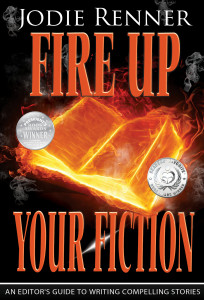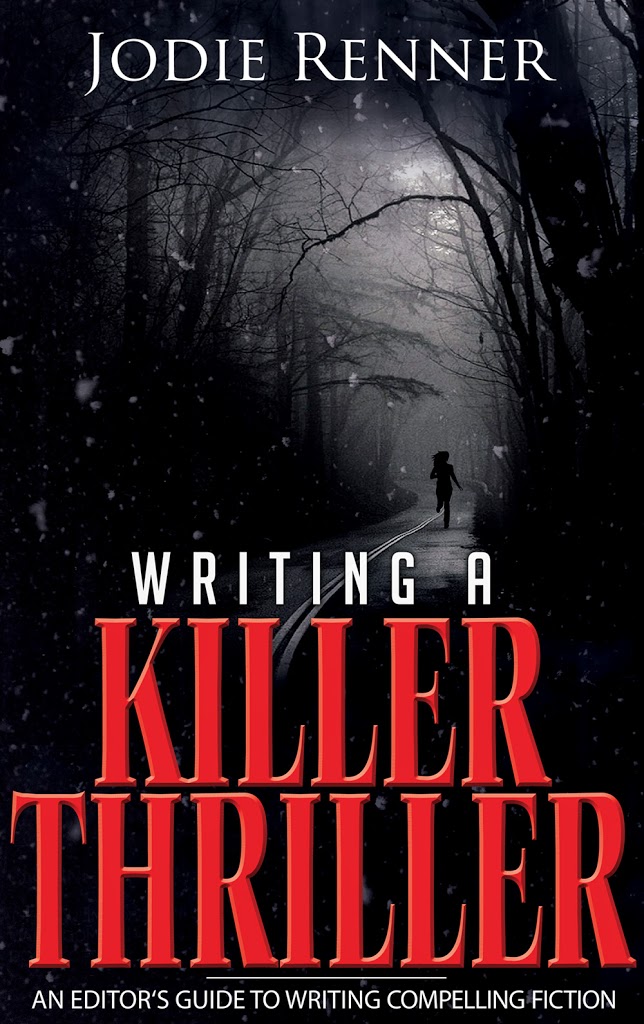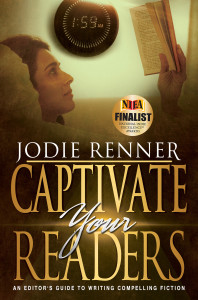by James Scott Bell
@jamesscottbell
 Brother Gilstrap’s recent post on critique groups raises a question I’ve heard from other writers: When do I know my book is ready to go out to an agent, editor, or direct to market?
Brother Gilstrap’s recent post on critique groups raises a question I’ve heard from other writers: When do I know my book is ready to go out to an agent, editor, or direct to market?
The answer depends on where you are as a writer. Let’s look at three categories.
The Newbie
This is your first novel. Maybe it’s not the first you’ve written. Most first novels are like first waffles. So you make up your mind to write another one.
Good for you! A lot of writers quit after that initial try.
Now read it through in hard copy, as if you were a book buyer. Don’t take copious notes. Just keep asking yourself at what point are you tempted to put the book down? Put a mark there and move on.
Then hunker down and fix what needs fixing, cut what needs cutting, add what needs adding. Learn your craft by consulting books that cover your weak spots. (Insert shameless plug here).
Write a second draft.
Now it’s time to get feedback. But you need to get it from people who know what to look for. I offer two options: informed beta readers and an experienced developmental editor.
Your beta readers don’t necessarily have to be writers. What you want are dedicated readers in your genre who are willing to give some detailed notes—for which you’ll take them to lunch or gift them an Amazon card (or something). My first beta has always been the eagle-eyed Mrs. B. Also, at the start in my career, I forged a relationship with the staff of a bookstore near me. They loved to read and were more than happy to look at my manuscripts.
Then I signed with a house and got paired with a fantastic developmental editor who upped my game. (A developmental editor focuses on the big picture of your novel, primarily structure, plot, characters, and scenes.)
At this point in your journey a solid developmental editor can be of great benefit. It’s going to cost money, but like any small business startup, you’ve got to invest to become the best.
How can you find such an editor? Get recommendations. Search the net. Study the websites. Look at their client list. Ask for a sample edit.
How much will this cost? In my opinion it should be in the low four figures. More than that and you’re passing a sign that reads Scam Territory: Proceed At Your Own Risk.
The Intermediate
Once you’ve had some publishing success, meaning three or four books that have gained traction, you should be able to get by solely with good beta readers. Key word, good. How do you find them? What do you ask them? See the TKZ posts here.
You’re still listening for development help. But you’re also getting more knowledgable with each book.
The Veteran
Once you’ve hit a certain level—maybe seven or eight books doing nicely—you can probably skip developmental editing. I remember asking a multi-published, bestselling author what he did with his manuscripts. He said, “I know enough now that I know when my story is solid. I get a copy edit to find any holes or contradictions, like a character who has blue eyes in chapter one and green eyes in chapter twenty. But that’s about it.” (I’ll add that you need to pay a proof reader to smash those pesky sand fleas we call typos.)
How to Take Criticism
There may come a time when an editor or beta reader hauls off and gives you a gut punch. Agent Steve Laube recently wrote a piece titled My Editor Made My Book Worse! It’s mostly for the traditionally published, but indies can take much of it to heart. It begins:
You just received a 15-page, single-spaced editorial letter from your editor. They want you to rewrite most of the book. But you disagree with the letter and are spitting mad. What do you do?
Or your agent took a look at your manuscript and told you to cut it in half to make it salable. What do you do?
Both examples are true stories and illustrate the universal challenge of refining your manuscript to make it the best it can be.
Steve advises:
- This is normal.
- Keep anger to yourself. (Don’t burn bridges!)
- Hear today. Respond tomorrow.
- Remember the editor is doing the best job they know how. And often they have a lot of experience with manuscripts like yours.
- Remember this is a negotiation, not a dictation. Ultimately, it is your book; and the editor is providing suggestions, not requirements.
- Remember that the suggestions with which you disagree may actually be valid.
- Communicate your frustration to your agent.
- Communicate with your editor. Be respectful but firm if you disagree. You’ll find that editors have their jobs because they know what they are doing.
- BUT if the edits are out of line, unreasonable, or outrageous, then you have every right to object. Decide which hills you will die on. A word here, a sentence there, a paragraph cut are not the place for the pitched battle.
When to Trust Thyself
There’s a famous story about Ayn Rand, when she turned in her behemoth manuscript for Atlas Shrugged to a famous editor named Bennett Cerf. He had a sit-down with her where he suggested, you know, this may be a little too long for the general market. And I’ve got some ideas to where to cut….
To which Rand replied, “You vould not cut zee Bible, vould you?”
Not exactly a shrinking violet, Ms. Rand (to this day, Atlas Shrugged sells tens of thousands of copies a year).
At some point you’ve got to trust yourself. You’ve done the work, learned the lessons, taken the feedback, and fixed and polished your manuscript. Now go for it. Send it out into the wild. Pop some champagne. You deserve it. Have yourself a nice dinner. Get a good night’s sleep.
And when you wake up start on your next book.
What steps do you take to know when a book is ready to go? What advice would you give a new writer on that question?



